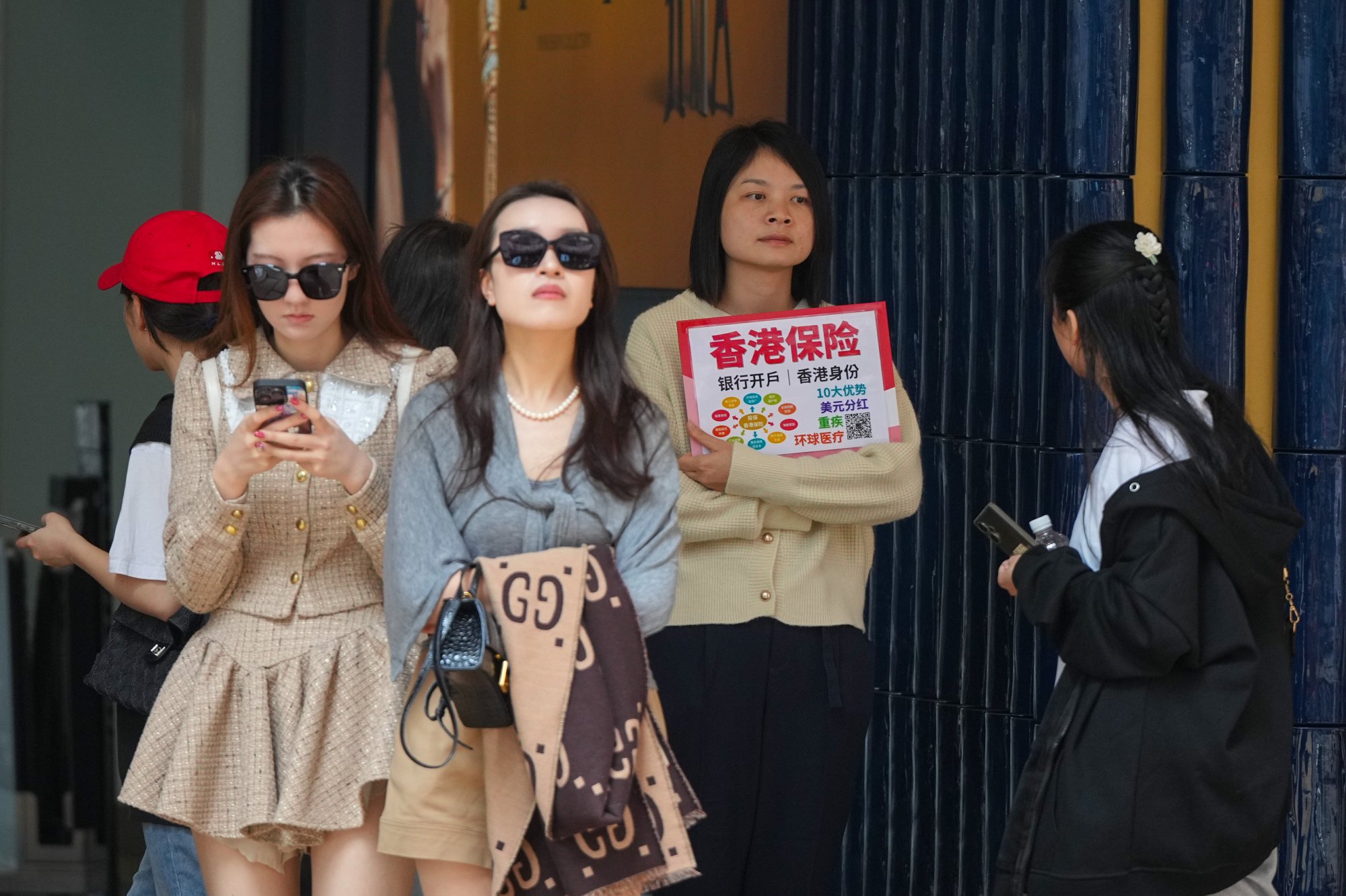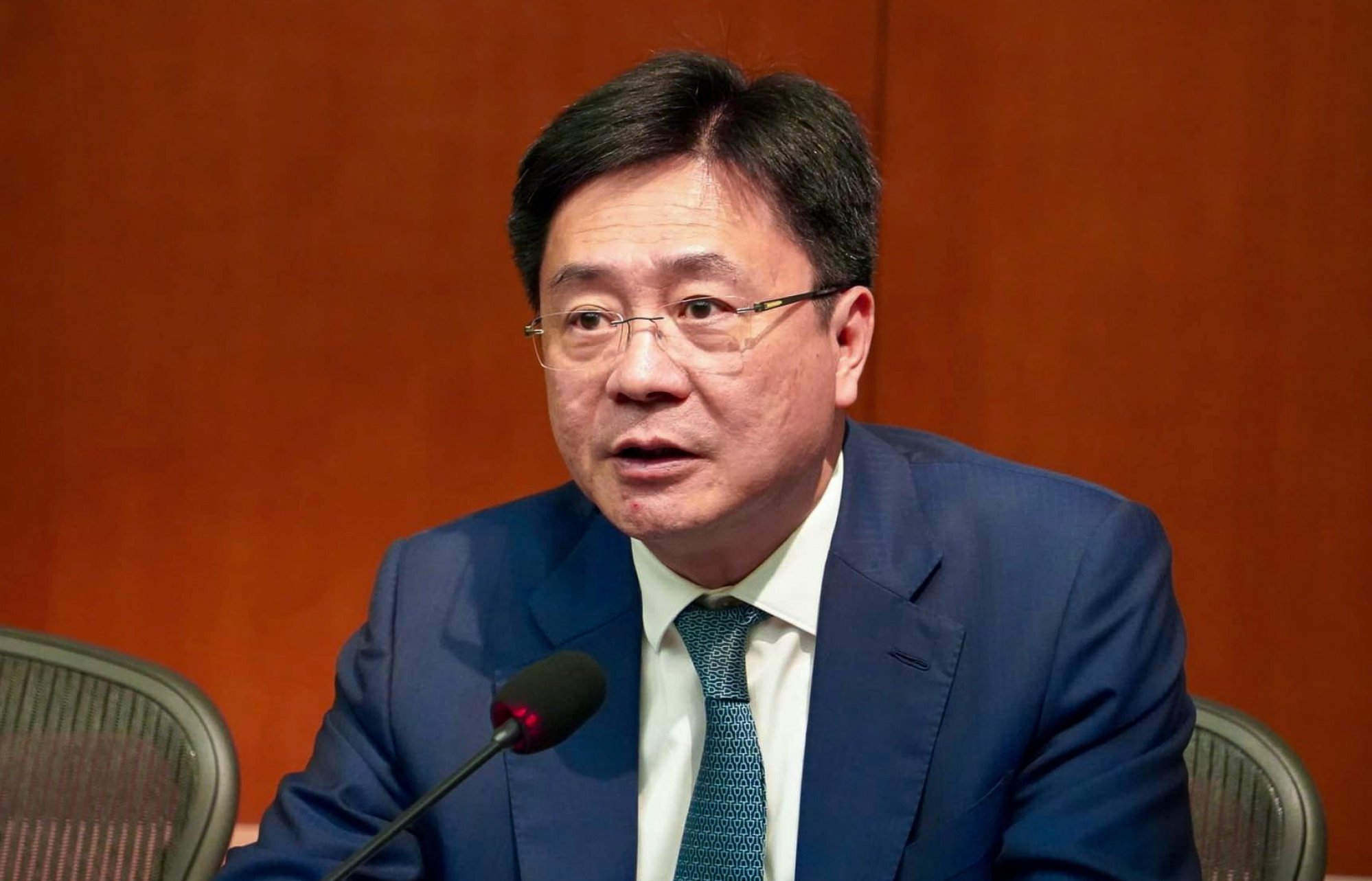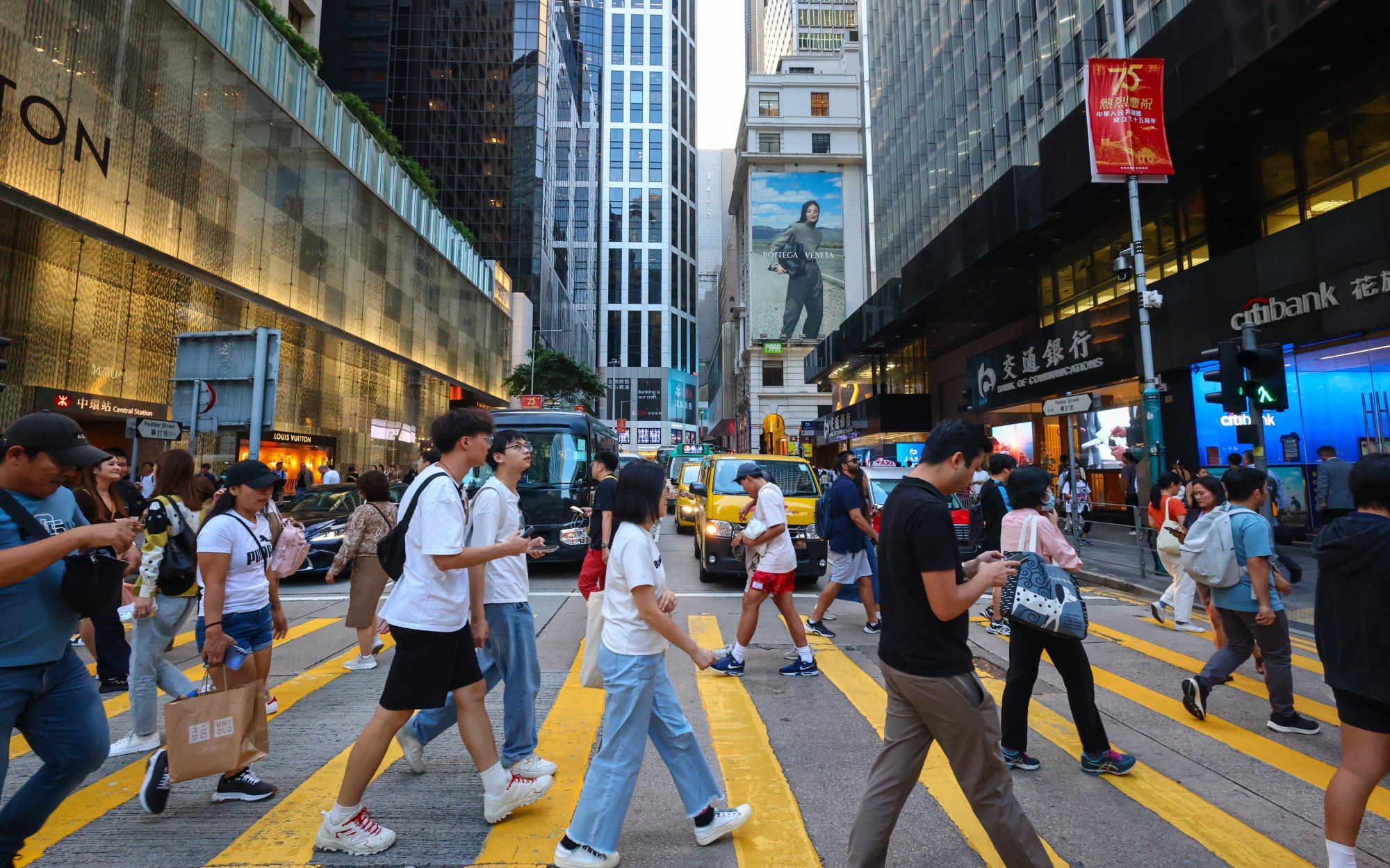
Why are so many people who came to Hong Kong via a scheme to attract global talent selling insurance? In the second of a three-part series, Kahon Chan from SCMP explores how the still-thriving insurance sector has become a safety net for those hoping to renew their visas to remain in the city. Read part one here.
Mainland Chinese professionals have been going online since the start of the year to talk about ways to remain in Hong Kong’s top talent scheme even without having jobs of their choice.
On Xiaohongshu, the popular Instagram-like social media platform, some said it was easy to apply for the city’s Top Talent Pass Scheme, but hard
Many ended up becoming licensed insurance agents. With the sector doing well in the city compared with other parts of the economy, some found the job paid well enough.
Those in the online discussion agreed that selling insurance was the easiest way to remain in the city, as the earliest applicants under the scheme had to renew their visas.
Critics have already begun asking whether city leader John Lee Ka-chiu meant to attract insurance salespeople when he launched the scheme to lure graduates of top universities, high-flyers and professionals.
Introduced in December 2022, it offered successful applicants a two-year visa which could be extended if they found jobs or set up a business in the city.
Applicants had to be earning an annual income of at least HK$2.5 million (US$320,730), or have a bachelor’s degree from a list of top universities with three to five years’ working experience.
Graduates working for less than three years could also apply, but only up to 10,000 would be accepted annually.
Between December 28, 2022, and September 30 this year, more than 81,000 people were granted two-year stays under the scheme, and 66,110 of them have arrived.
With the clock ticking for the earliest top talent visa holders to start applying from November to extend their stay, another question being asked is whether those who only landed jobs selling insurance deserved to have their work visas renewed.

A Xiaohongshu user going by the handle “Top Talent Xiao Song wants a renewal!” made no secret about her attempt to remain in the scheme without even being in Hong Kong.
In a post early this year, she claimed to be 30 and revealed that she was with her family on the mainland, planning to have a baby and unable to move to Hong Kong any time soon.
She said she was one of the first to obtain the top talent pass and the only work she could get was in insurance sales. The work was flexible, she could do it from the mainland, and it paid well enough.
For ordinary talent pass holders like herself, she said, an insurance job was “the ultimate answer” to getting their visas renewed. She said she hoped that her child would be educated in Hong Kong.
Like her, many others viewed their insurance jobs as a “safety net” for remaining in the city.
Hong Kong saw a 30 per cent year-on-year increase in the number of newly licensed insurance brokers last year, latest data showed, and this was likely to be fuelled in part by people arriving under the top talent scheme.
One of the criteria for a visa extension is securing a job “at a level commonly taken up by degree holders or people with good professional or technical qualifications” and with a “market-level” pay package.
But with so many hoping to use their insurance jobs to renew their visas, critics have asked whether this defeated the original purpose of the scheme.
‘Not the ideal job, but a springboard’
Tina Cheng, head of Midland Immigration Consultancy, said she believed most top talent scheme applicants in the insurance sector were those with bachelor’s degrees from one of 198 designated top-ranked universities, including those on the mainland.
“Insurance may not be their ultimate ideal job, but a transit point or springboard to retaining their visas,” she said, adding that the sector was easy to join with its low barriers to entry and flexible work arrangements.
She felt the application process for the top talent scheme applicants was too simple.
“All they need is a bachelor’s degree and HK$230 for the visa fees,” she said. “They don’t even have to consider whether they really want to come to Hong Kong to work and live after receiving the top talent visa.”
There are no official statistics on how many top talent visa holders have turned to selling insurance.
According to the Insurance Authority, more than 17,000 people applied for individual intermediary licences to sell insurance in the first nine months of 2024, up by almost a third from around 13,000 in the same period last year.
The total from January to September this year also exceeded the full-year figure of about 15,000 for each of the financial years 2022-23 and 2021-22.
The Hong Kong Federation of Insurers said individual insurance firms had taken advantage of the Top Talent Pass Scheme to fill jobs including “front-office roles” which typically refer to agents.
Lawmakers have noticed the trend and at a committee meeting in June, Secretary for Labour and Welfare Chris Sun Yuk-han gave an assurance that the Immigration Department would take “a very close look” at applicants for visa extensions who were working in insurance.
“As they engage in work that is similar to that of self-employment, we will be more careful vetting them,” he said.
“We will examine how much work they have done, how much income they have earned, whether they live in Hong Kong and whether the proof they provide can be clearly verified to ensure that their income is earned through their own work.”
His last remark was apparently a reference to talk of a shady practice by some agents who listed policies sold by other salespeople as deals they had clinched.
Concerned that some arrivals from the mainland would exploit loopholes to obtain residency, lawmaker Chan Pui-leung has raised the issue of their becoming insurance agents with the authorities and insurers.
He said insurance salespeople were generally considered self-employed in Hong Kong and companies could not be expected to provide proof of employment when they applied to extend their visas.

Those who did little actual selling but tried to make it appear that they had an income stream by buying a couple of high-value policies themselves and passing them off as sales, would have their visa extension applications scrutinised and were likely to be denied, he warned.
“They shouldn’t take chances and come to Hong Kong to take advantage of some loopholes in the hope of obtaining this status,” said Chan, who is general manager of China Taiping Insurance (Hong Kong).
“The intention of the scheme is to attract talent currently lacking in Hong Kong, and for them to stay in Hong Kong and contribute to the city’s economy.”
‘Insurance can be a long-term career’
Shaanxi native Peter Jia, 40, an insurance agent in Hong Kong for six years and a full-time resident, said he could understand the anxiety of visa extension applicants as there were no precedents of authorities’ vetting standards.
Jia said more than half his team of salespeople were new arrivals who had come through the top talent scheme, and there had been a large number of inquiries over the past year or two.
“I advise all my friends who ask me about it to regard the insurance industry as a long-term career,” he said. “I understand it is a bother to extend the visa, but we must also think long-term about being in Hong Kong and what benefits it can bring to ourselves and our children if we establish ourselves here.”
He said he believed the sector was more than a safety net of last resort for top talent keen to remain, pointing out that Hong Kong insurance products had long been popular with mainlanders.
Insurance enjoyed a boom in Hong Kong whereas retail and other sectors struggled after the Covid-19 pandemic.
The sector’s business receipts index – tracked by the government using 2015 revenue levels as a base of 100 – was 182.2 in the first half of this year, up 9.3 per cent over the same period in 2023.
The industry’s income gains over the past nine years ranked third among all service industry categories, behind top-placed computer and information technology services and warehousing and storage.
Policies bought by mainlanders were a key driving force. Mainland visitors accounted for a quarter of all new policies in the first half of this year, totalling HK$29.7 billion, according to the Insurance Authority.
While that was a 6.9 per cent decline from the first half of last year, the total was still 13 per cent higher than the same period of 2019 and exceeded the industry regulator’s expectations.
Explaining why mainlanders shopped for policies in Hong Kong, Jia said the city’s savings-type insurance plans could offer higher returns, and those mostly denominated in US dollars allowed people to diversify their assets.
The critical illness protection plans offered in the city were also attractive because of easier settlement of claims. Jia said policyholders were likely to obtain better claims from a Hong Kong insurer than one on the mainland for the same medical condition.
Hong Kong insurance agents from the mainland could use their personal networks to court clients, but Jia said all sales activities had to take place within the city.
‘A key link to wealthy mainlanders’
Economist Chen Zhiwu, chair professor of finance at the University of Hong Kong (HKU), said it was time the city embraced the trend of talent turning to selling insurance.
“I know that right now it is fashionable for many to say that Hong Kong should attract entrepreneurs and hi-tech professionals, but that wish clashes with Hong Kong’s reality,” he said.
“Hong Kong’s office space and residential flats are all so expensive, while Hong Kong also does not have the right ecosystem for technological businesses. It will be many many years before the city can ever have the right set-up for hi-tech.”
As Hong Kong grappled with a sluggish economy, he said its traditional strengths offered the best hope for a turnaround, including serving the still-robust demand for wealth management across the border.
“The insurance industry is a key intermediary that links Hong Kong’s economy to the mainland’s wealthy families. Retaining these insurance talent is an important step to prevent the economy from tanking further.”

HKU professor of economics Wu Yanhui acknowledged that some might worry that the current policy may fail to secure the right type of talent and the government needed a tailored strategy. But he did not think the trend of top talent visa holders selling insurance was a problem in itself.
“As long as the government can regulate and monitor their business activities, insurance agents may even help create new jobs,” he said.
He said it was common for new migrants’ skills and experience to be a mismatch in the new place they move to, while the local labour market might also not recognise their abilities.
Their consequent efforts to make a living could lead to disruption in the local labour market and social problems, he added.
“Many problems will occur in the implementation of a talent policy. This is completely normal, particularly in today’s complicated world. But the government should be aware of the pros and cons and fine-tune the policy whenever necessary,” Wu said.
Additional reporting by Willa Wu
More from South China Morning Post:
- Where are the jobs? Top talent lured to Hong Kong struggle to find work
- 1,887 Hong Kong teachers apply to work in England under education talent scheme
- Hong Kong’s leader focuses on transforming traditional sectors, attracting talent in policy blueprint
For the latest news from the South China Morning Post download our mobile app. Copyright 2024.











































